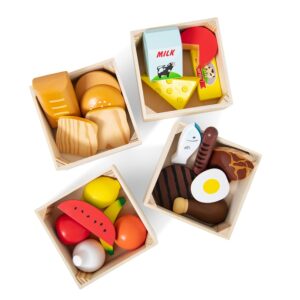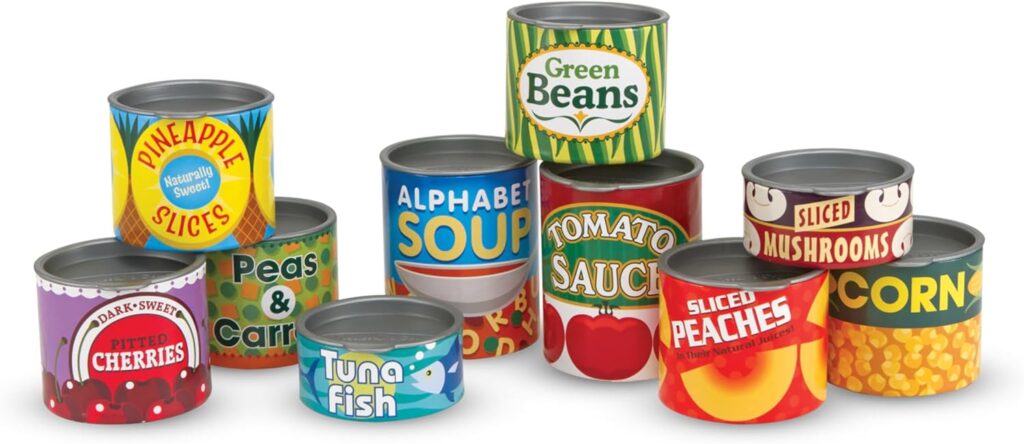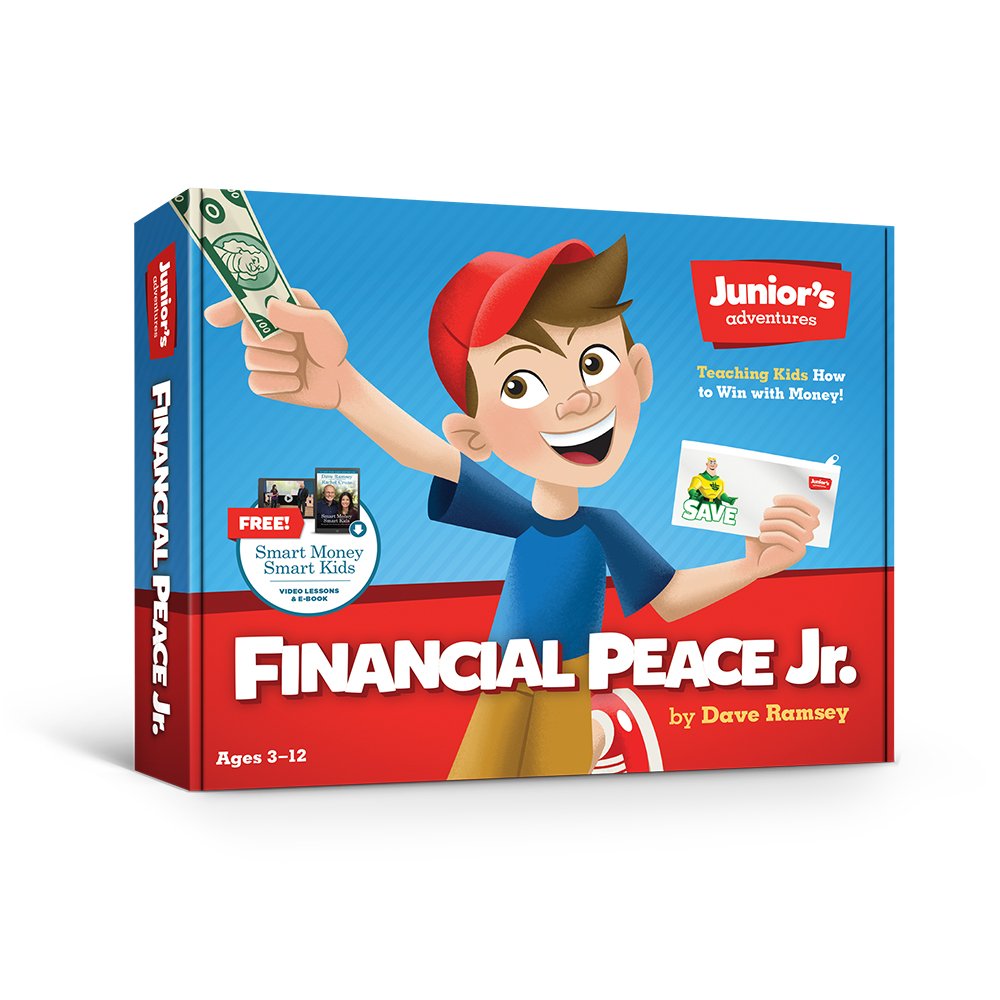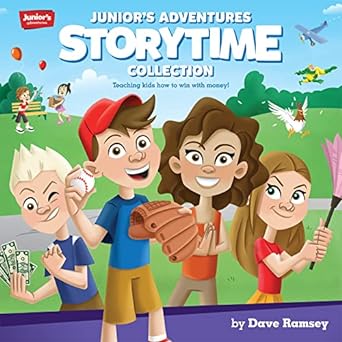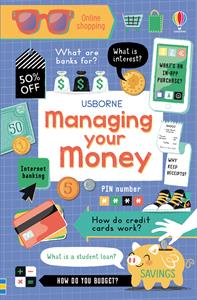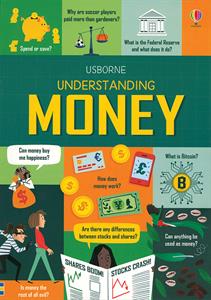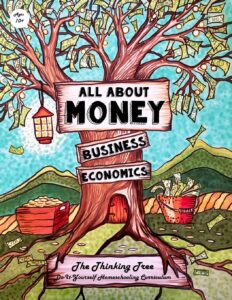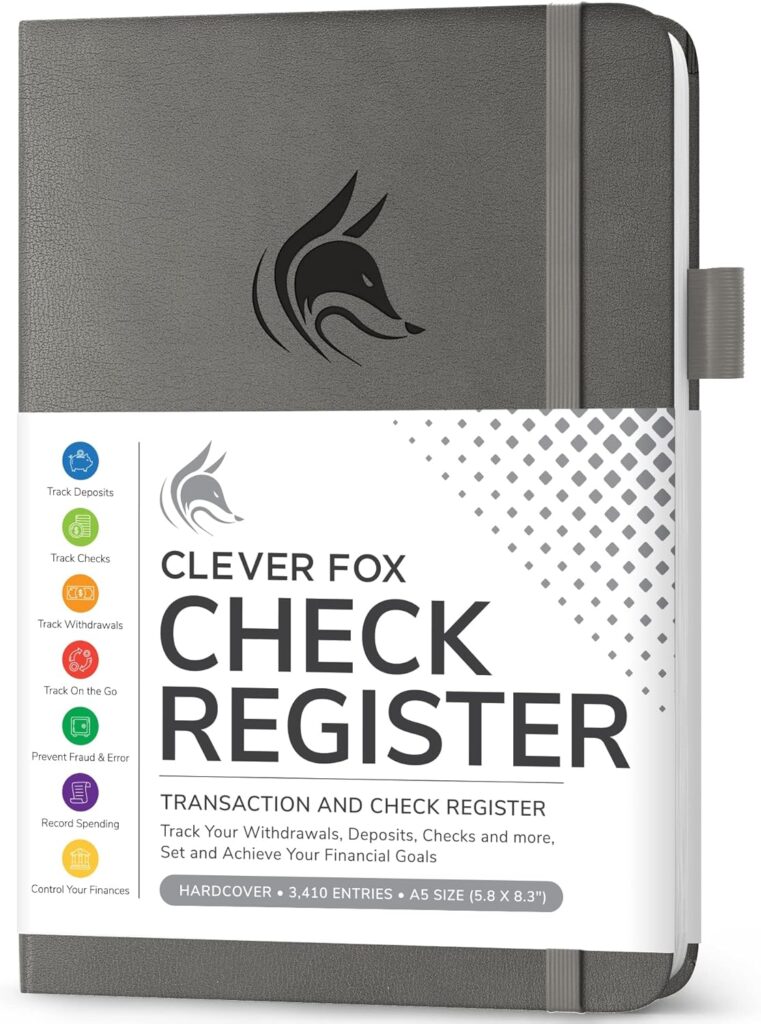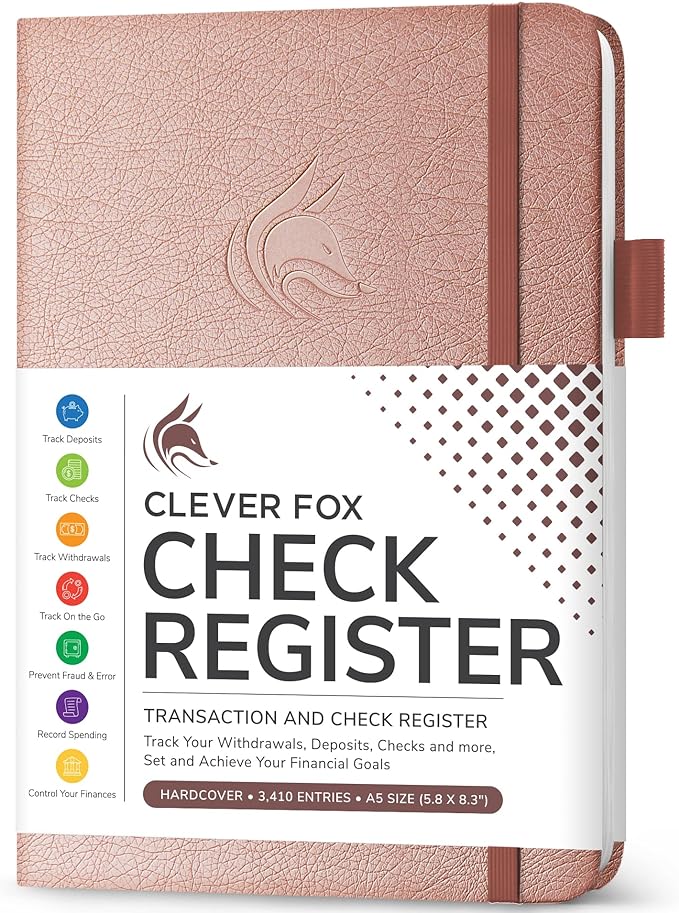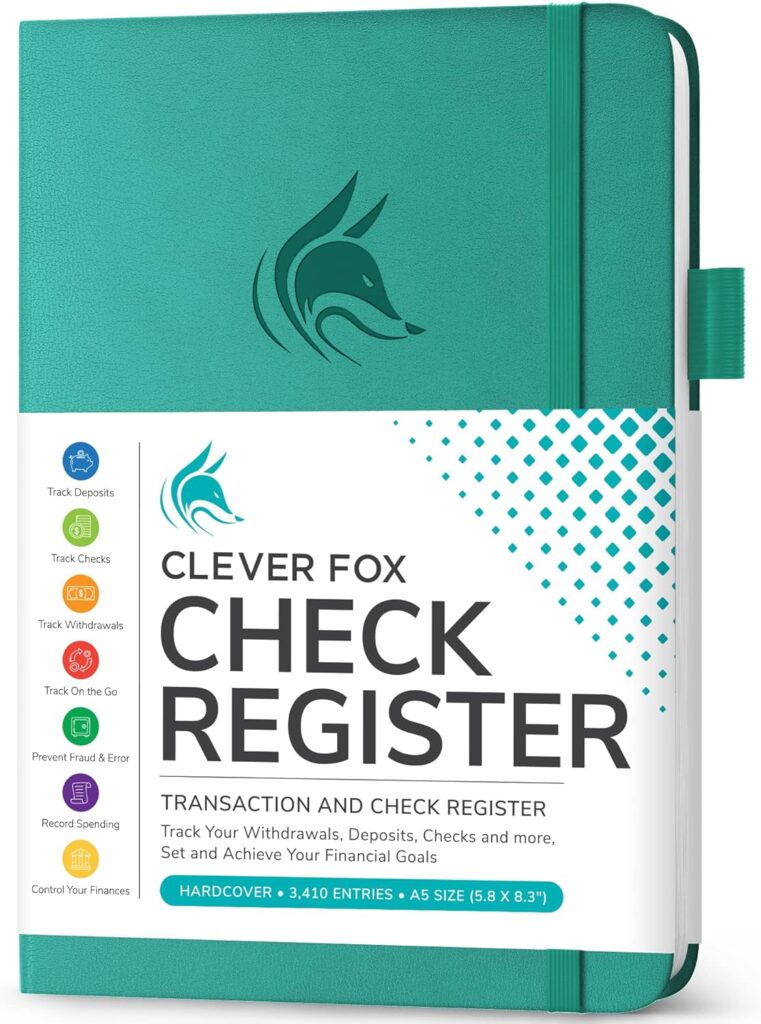Lifeschooling: Helpful Tools/Resources for Raising Financially Literate Kids
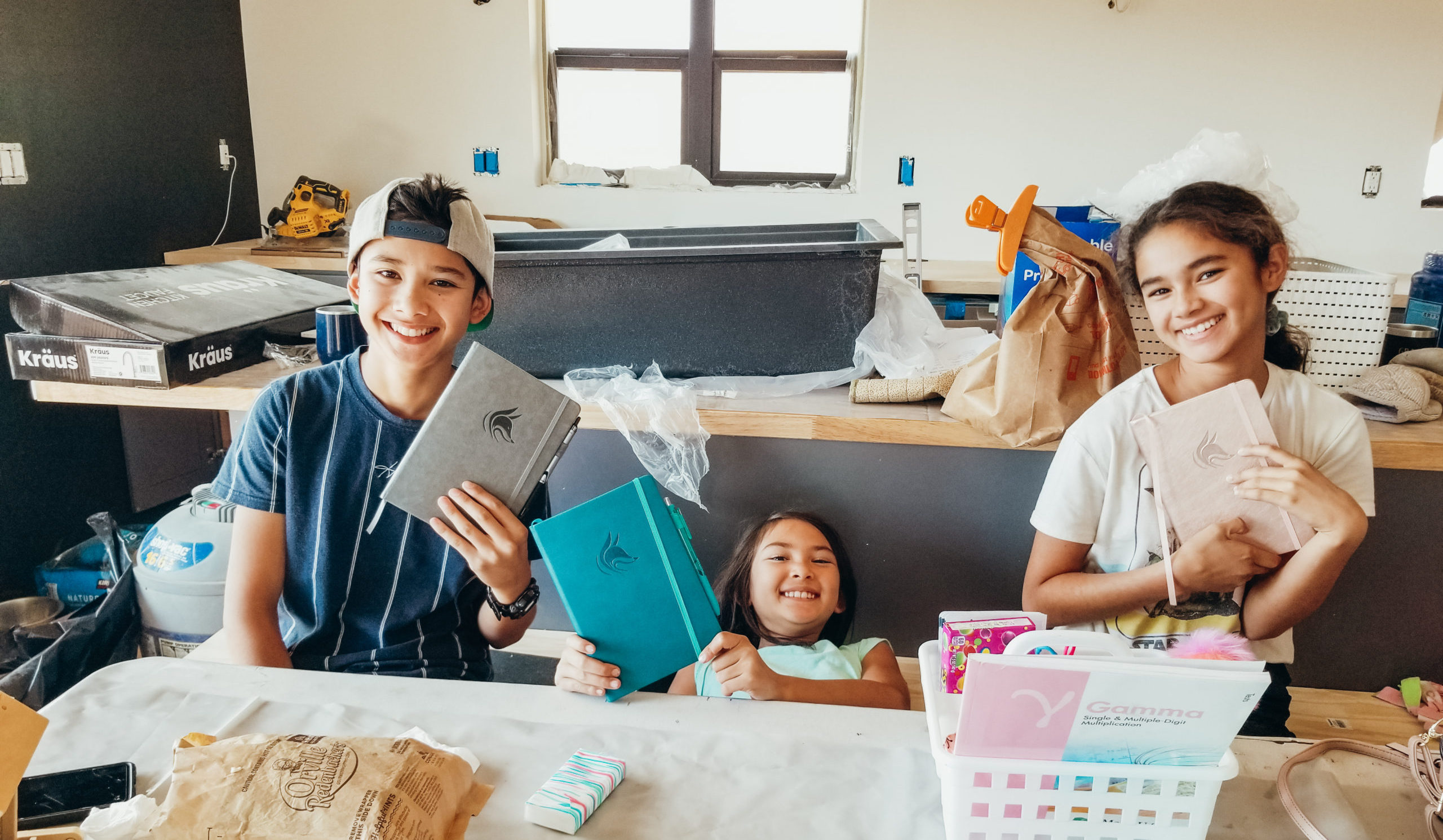
I’ve shared what I think are the 5 keys to raising financially literate kids. And now, you are ready to hit the ground running! In this post I share what our own family has used in case this may be a help to you.
This post contains affiliate links and we may earn compensation when you click on the links, at no additional cost to you.
For Littles:
Sitting your preschooler or kindergartener down for a talk on budgeting isn’t necessarily going to fly. At this stage, they “catch” concepts through hands-on activities and play.
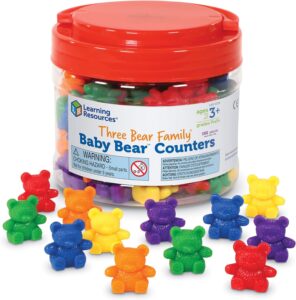
Okay, how do bears relate to financially literate kids?!
Well, when our kids were still itty bitty (3-ish to 4-ish years old), I sometimes used manipulatives (we had these bears) to represent value. I would take them to the store to pick out a toy (this would be an intentional, stand-alone excursion so that I could focus on the learning experience … I wouldn’t do this while you are trying to get your groceries or run other shopping errands). But instead of giving them hard cash, I gave them the bears (usually around 10) to represent how much they had to spend ($10).
If they saw a toy they liked, I would point to the price (I just focused on the dollar part, not the cents) and then help them count out the same amount of bears. Not only was I able to teach my kids numbers, but the value of things. If they wanted a toy that cost $9, then they could “see” how quickly they could lose their bears, or even see that they may not have enough bears, if the toy cost more than $10.
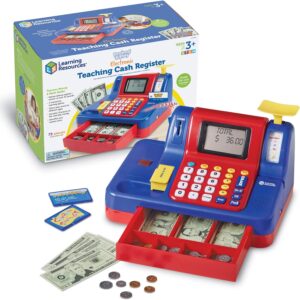
The Learning Resources Pretend and Play Teaching Cash Register was a hit in our home (still is – Baby Sis actually brings it with her to the kid maker market she sells her jewelry at, and uses it for her sales transactions. LOL).
I once made a pretend menu with prices and instead of doing a math workbook, I’d play restaurant with the kids. Or I’d set up the living room with all their pretend food and play market.
This a great way for kids to learn to handle cash and practice their money math, especially once they reach the kindergarten stage. Not to mention, a fun and interactive way to homeschool!
For Kids:
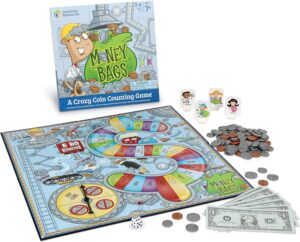
The Learning Resources Money Bags Game helped our kids solidify their money counting skills. Gameschooling for the win!
We were able to teach our kids Dave Ramsey’s financial principles with the Financial Peace Junior Kit and Junior’s Adventures Storytime Collection (these links lead to the updated version of what we had). The toolkit includes : a parent guide, an activity book for kids, a chore chart, a rewards chart, and one set of give/save/spend envelopes. The storytime collection includes 6 books on the topics of : working hard, integrity, debt, savings, spending, and giving.
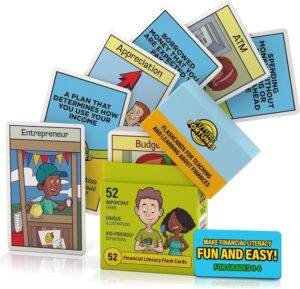
I helped with the feedback during the development stage of these awesome Future Fortunes Financial Literacy Flash Cards. I wish these came out when the Bigs were younger but Baby Sis has been really enjoying them. Kid-friendly definitions are combined with engaging illustrations that your visual learners will appreciate. The flash card format is conducive for on-the-go learning (just throw in your purse or leave in the car), and is perfect for those tactile learners who have a harder time reading this kind of content from a book.
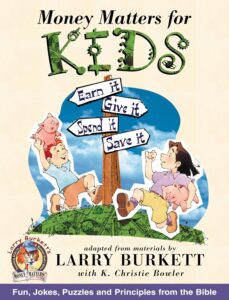
A devotional-style activity book that you can incorporate into your homeschool curriculum is Money Matters for Kids by Crown Financial Ministries’ co-founder, Larry Burkett (I am currently going through this with Baby Sis). It is packed with fun activities, jokes, and puzzles. I love how the very first part of the book emphasized our stewardship role over our finances/possessions and my daughter enjoys the “treasure hunts” within the book.
For Tweens:
Both of Usborne’s Managing Your Money and Understanding Money are great, down-to-earth independent reading resources.
Managing Your Money is more like a chapter book, packed with kid-friendly font and black-and-white illustrations and charts.
Understanding Money is more like a colorful, informational guide with comic book-ish illustrations (think dialogue boxes).
All About Money is a fun, interactive workbook packed with fascinating information and learning activity prompts that will compel your kiddo to engage with the material.
For Teens:
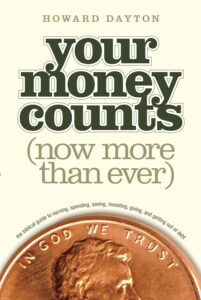
At 13 years old, our son read our copy of Your Money Counts: The Biblical Guide to Earning, Spending, Saving, Investing, Giving, and Getting Out of Debt by Howard L. Dayton, Jr. (the other co-founder of Crown Financial Ministries). According to our son, “My biggest take away from the book is that we are just stewards of God’s money and to be faithful in the small things – in terms of spending and giving – even when no one is looking.”
The Clever Fox Check Registers are what our family uses track income and expenses within our “family economy” (a home-based financial system as outlined in the book, The Entitlement Trap: How to Rescue Your Child with a New Family System of Choosing, Earning, and Ownership). In the previous post, I mentioned we have implemented a modified version of this system … and one of those modifications is having our kids track their expenses with these booklets (I plan on dedicating a separate, future post on with more details on how we do our own “family economy”, so stay tuned).
Even if you don’t know what the “family economy” is, this is a great way for your kids to start building their financial stewardship skills, by tracking any money they make plus all the things they spend their money on. It is almost like a journal, but for finances, and can tell your kids a lot about where their “treasure” really is by their spending habits.
I included it under the teens section, but our 10-year old also has one as well; it’s wonderful, hands-on way to do real life math!
UPDATE JANUARY 2025: We recently came across another great resource for helping with teaching financial literacy & budgeting! The Hadley Designs Budget Planner not only allows you to track income/expenses, but also has helpful sections for setting financial goals, monthly financial tracking, holiday finances, and so much more. We have switched Baby Sis (who is now 13 years old as of this update) to this planner and she is loving it, especially since it is cute and whimsical, LOL!
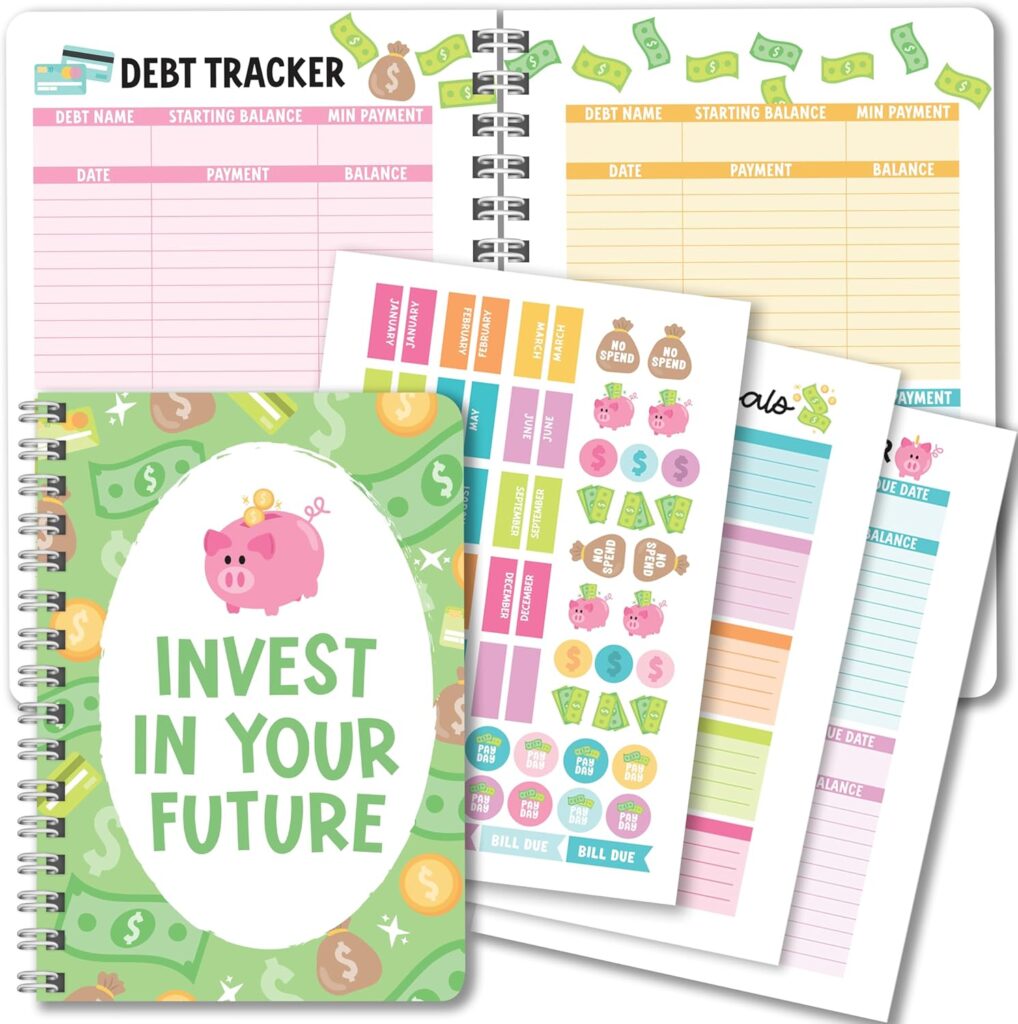
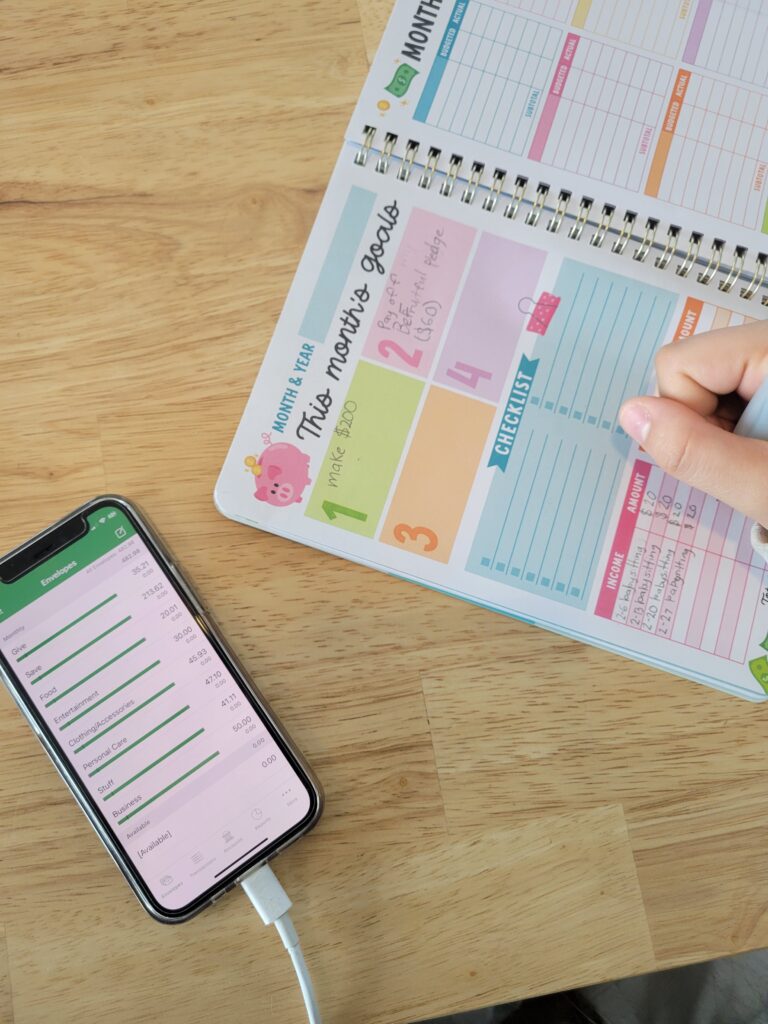
As well, all three kids have adopted a digital form of budgeting using the Goodbudget App (something my husband and I have used for years; it’s like having envelopes but in digital format). Both Big Bro (age 18) and Big Sis (age 16) now use this app exclusively, but Baby Sis is using the app in tandem with her journal so she can continue training herself in both digital and paper formats.

